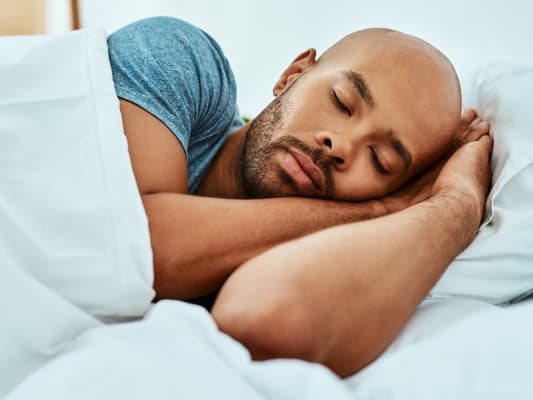Getting Ample Sleep Helps Your Golf Game

A study conducted by the American College of Chest Physicians found that golfers who undergo treatment for sleep apnea may both improve their golf game and their overall health.
In fact, the research says that golfers being treated for obstructive sleep apnea improved their daytime sleepiness scores and lowered their golf handicap by as much as three strokes.
Sleep is important, and sleep apnea is one of the most common sleep disorders. Insomnia and restless leg syndrome are also common.
If you don’t get a good night’s sleep (seven to eight hours a night), it can decrease your ability to process complex thoughts and strategies — including the ones that help you on the golf course. Steve Johnson, manager of Respiratory Services for Middlesex Health, says a poor night’s sleep can also increase the likelihood that you will make mistakes, and it increases emotional responses, such as anger and depression. If a mistake is made, he says a lack of sleep can make it harder to focus and recover.
Why this happens is extremely complex, and scientists are still trying to put the reasoning together. However, there are a few things that you can do to ensure that you get a better night’s sleep, especially the night before a big tournament.
- Keep a consistent sleep schedule.
- Get up at the same time every day, even on weekends or while on vacation.
- Set a bedtime that is early enough for you to get at least seven hours of sleep.
- Don’t go to bed unless you are sleepy.
- If you don’t fall asleep after 20 minutes, get out of bed.
- Establish a relaxing bedtime routine.
- Use your bed only for sleep and sex.
- Make your bedroom quiet and relaxing. Keep the room at a comfortable, cool temperature.
- Limit exposure to bright light in the evenings.
- Turn off electronic devices at least 30 minutes before bedtime.
- Don’t eat a large meal before bedtime. If you are hungry at night, eat a light, healthy snack. Exercise regularly and maintain a healthy diet.
- Avoid consuming caffeine in the late afternoon or evening.
- Avoid consuming alcohol before bedtime.
- Reduce your fluid intake before bedtime.
If you are having trouble sleeping, Middlesex Health has a Sleep Disorders Center, accredited by the American Academy of Sleep Medicine, that can help evaluate, diagnose and treat those who have problems with sleeping and/or waking. For more information, visit MiddlesexHealth.org/Sleep.
More Stories
Beware of the Mosquito!
It’s common to find mosquitoes on the golf course, especially in the brush, in wooded areas or near water, and they can be a nuisance — and a health risk.
Making a Difference One Golf Swing at a Time
June was a busy month for Middlesex Health. In addition to providing excellent care every day for patients, celebrating Pride Month and marking Juneteenth, the health system was at the golf course supporting the community!